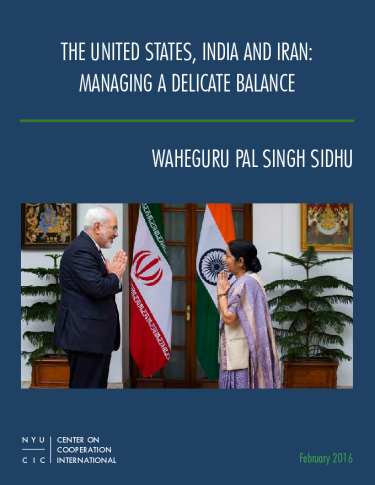The India-U.S. relationship is presently stronger than at anytime in their history. The twin summits – less than six months apart – in September 2014 and January 2015 between President Barack Obama and Prime Minister Narendra Modi have repaired, revived and revitalized the strategic partnership. Yet there remain several hurdles to deepening the relationship, notably, geopolitical differences over Iran, Russia, Syria and India’s membership of various nuclear and missile export control regimes. Perhaps the most formidable of these in terms of immediacy and proximity is the resolution of the Iranian nuclear challenge.
This policy paper is divided into four sections and will assess the prospects for engagement between the U.S. and India on the crucial issue of Iran’s nuclear proliferation. The first section will examine the nature of India’s multifaceted (i.e., energy, geopolitics, geo-economics and nuclear) relations with Iran. The next section will study India’s changing approach to proliferation in general, including the role of the India-U.S. nuclear deal in this process. The third section will examine India’s evolving approach to Iran’s nuclear challenge in particular. The final section will explore areas of convergence and divergence between the U.S. and India on Iran, and will suggest ways for the U.S. and India to work together to successfully implement JCPOA, curtail Iran’s nuclear proliferation and strengthen the strategic partnership between Washington and New Delhi.


